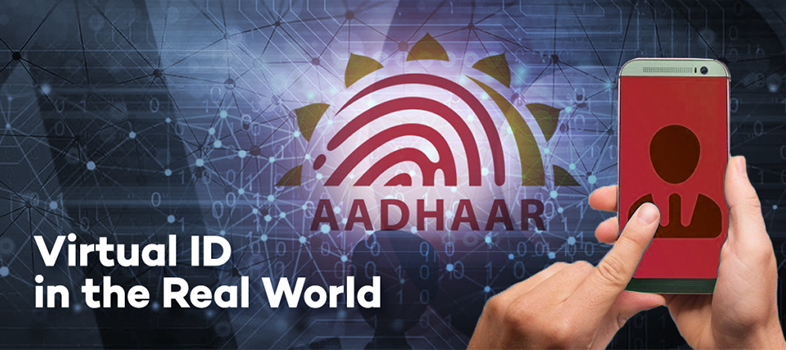Have you heard about Virtual ID? UIDAI introduced Virtual IDs after facing concerns over security of users’ data. The concerns were raised over security of the users’ data as the Aadhaar number gets saved on whichever platform you put your Aadhaar number. Aadhaar number can be replicated and used anywhere without even letting the user know about it since it has all the details linked to it.
Catering to such genuine concerns, UIDAI launched Virtual IDs, a 16-digit number that can be created randomly by the users. A good thing about the newly introduced concept is that the number is temporary and if you create another one, the previous one gets deactivated. It is also said that a number is valid for a stipulated time. Therefore, it cannot be replicated or duplicated.
Also read: Know everything about Virtual Aadhaar ID and stop being cheated
How does virtual ID work?
Once you generate the ID on UIDAI website and fill in the desired details, it sends an OTP to the mobile number linked to your Aadhar number. You need to fill in the OTP received on your number to generate or retrieve your virtual ID. The safe part being that the VID is not flashed on your screen, it is sent to your registered mobile number therefore protecting it from someone else using it.
How is Aadhaar Virtual ID Different from Aadhaar Number?
First difference is the difference in digits it will be 16-digit whereas Aadhaar is 12-digit. VID will provide access to some specific information and won’t disclose the vital details, for eg. If you enter your virtual ID for verification it might only provide your photo, address or name to an authority whereas Aadhaar number has all your bank account details, phone number, etc. that is all personal and no user would want to disclose it under any condition as it can be misused.
VID is subject to cancellation or can be changed by the user if he/she feels apprehensive whereas Aadhaar once registered somewhere can be replicated and used illegally.
Further step taken by UIDAI to secure the Aadhaar details is ‘limited KYC’ that restricts the data disclosure of the users therefore ensuring security.

